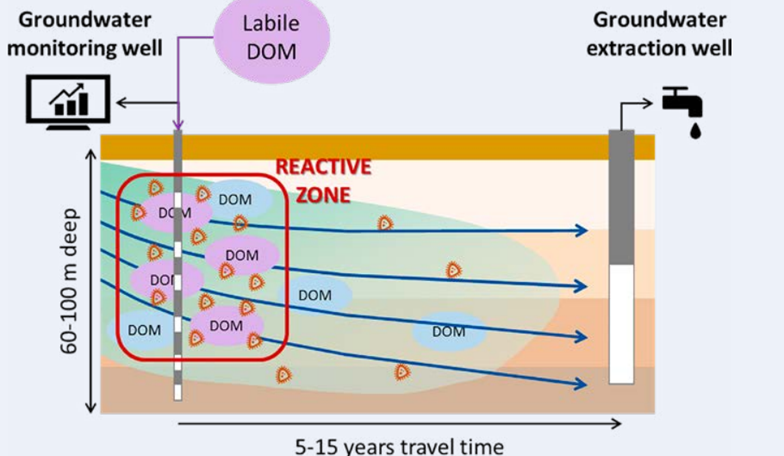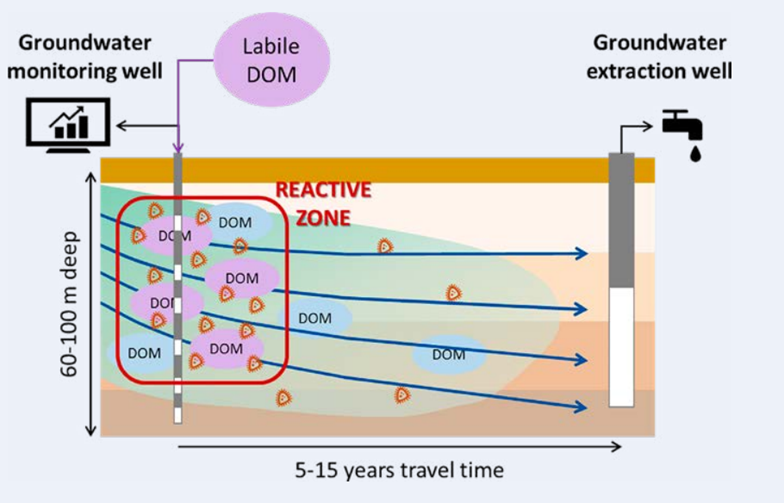Dissolved organic matter dosing to enhance in situ pesticide biodegradation in drinking water aquifers

Roel Meulepas
Wetsus
- Wageningen Universiteit
- Vitens
- WLN
- Arcadis
- A.Hak
- BioSoil
- Wetsus
Approximately two-thirds of the drinking water in the Netherlands is produced from groundwater. A recent study by the Netherlands National Institute for Public Health and the Environment found pesticide residues at approximately 25% of the 215 drinking water locations. Due to the distributed nature of the source and the uncertainties about the dispersion of pesticides via groundwater, strategies to protect drinking water sources have been insufficient. Therefore, there is a need for technology for the in situ removal of pesticides in drinking water aquifers.
Technology
Pesticides in groundwater can be degraded by microorganisms in a process called natural attenuation. The presence of natural dissolved organic matter (DOM) is a key factor in this natural attenuation process, indicating that DOM addition could be used to enhance biodegradation. The in situ treatment proposed here is intrinsically energy efficient and aims at protecting vulnerable groundwater locations. The technology uses the existing groundwater flow to bring the contaminated water in contact with naturally occurring microorganisms for biodegradation. Furthermore, the DOC supplied will be of natural origin and will be supplied through existing wells, ensuring minimal disturbance of groundwater systems. It is anticipated that this technology can be developed to simultaneously treat a variety of priority contaminants.
Challenge
The goal of this research is to develop a robust in situ biodegradation technology using DOM amendment based on a fundamental understanding of the role of DOM in pesticide biodegradation.
Solution
This research will investigate the effect of different fractions of DOM on pesticide biodegradation and the involved microbial communities. Subsequently, column experiments are performed in which the field conditions are simulated, with these results being used to develop a model for groundwater in situ bioremediation. Finally, the obtained remediation strategy will be validated in the field.
Results
H. R. Branco, R., Meulepas, R.J.W., van Veelen, H.P.J., Rijnaarts, H.H.M., Sutton, N.B. (2023). Influence of redox condition and inoculum on micropollutant biodegradation by soil and activated sludge communities. The Science of the Total Environment, 897(165233), 165233. https://doi.org/10.1016/j.scitotenv.2023.165233
